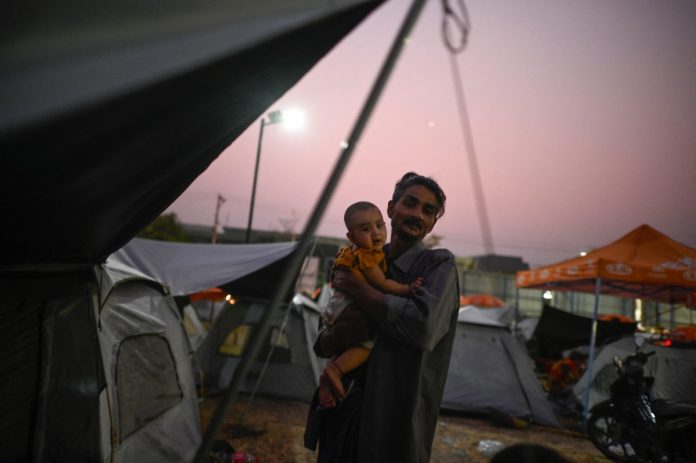Amid a rising death toll from the devastating March 28 earthquake in central Myanmar, the country’s Catholic Church and international human rights groups are calling for urgent and unhindered humanitarian access to the affected areas.
“There is a lack of medicine and emergency shelter, as many are injured and thousands are homeless on the streets,” said Karuna Myanmar (Caritas Burma), the Church’s humanitarian arm, in a statement sent to Fides News Agency.
Caritas Burma said “the destruction is widespread and the civilian population has been severely affected,” with ongoing power outages and disrupted communications.
The earthquake, which struck at 12:50 p.m. local time, had its epicenter in Sagaing Region, near Mandalay and Naypyidaw.
Official figures released by the junta list over 1,700 dead, but estimates by the US Geological Survey suggest the toll could reach or exceed 10,000. Karuna Myanmar said more than 2,000 are confirmed dead, with over 3,400 injured and more than 300 missing.
In its appeal, the Bishops’ Conference of Myanmar called for an “urgent ceasefire to facilitate the delivery of humanitarian aid.”
The bishops warned that the earthquake has “further exacerbated the profound multidimensional humanitarian crisis already gripping Myanmar,” where nearly 20 million people—including 6.3 million children—urgently need assistance.
“The Catholic Church reaffirms its unwavering support for those affected and expresses its condolences to the families who have lost loved ones,” the bishops said. “We pray especially for those who have died in places of worship, pagodas, and mosques.”
Karuna Myanmar said its national and diocesan offices have mobilized volunteers and begun coordination with local authorities and other religious leaders in Mandalay, the worst-hit diocese. However, access remains difficult.
“Karuna volunteer teams are still unable to travel to the affected areas due to disruptions or lack of security,” the agency said, adding that its national office is now coordinating with Caritas Internationalis, UNHCR, and other global humanitarian agencies.
Meanwhile, Human Rights Watch criticized the junta for ongoing military operations, including airstrikes and internet shutdowns, in regions devastated by the quake.
“Myanmar’s military junta still invokes fear, even in the wake of a horrific natural disaster that killed and injured thousands,” said Bryony Lau, HRW’s deputy Asia director. “The junta needs to break from its appalling past practice and ensure that humanitarian aid quickly reaches those whose lives are at risk.”
In Sagaing, local rescue efforts remain under-equipped. “The bodies for volunteers to cremate are piling up,” one rescue worker told HRW. “Even if they cremate a body every three minutes, they would have to work around the clock.”
The regional capital has reportedly run out of body bags, and the stench of decaying corpses fills the city.
Electricity, clean water, food, and fuel remain scarce across quake-affected towns and cities, including Mandalay and Sagaing. Shops and markets remain closed, forcing thousands to sleep outdoors without adequate shelter.
While the junta declared an emergency in six states and regions and appealed for international aid, it has also blocked some foreign rescue teams from entering the country.
Emergency workers from Taiwan were denied entry, and the military said foreign media will not be allowed to report from inside Myanmar.
Reports from local media indicate that junta authorities have imposed tight restrictions on volunteer work.
In Sagaing, groups must submit lists of volunteers and donations to obtain permission to help. The military has not lifted curfews in place since the Covid-19 pandemic, which has further delayed rescue operations.
Even before the earthquake, the humanitarian situation in central Myanmar was dire. Armed conflict between the military and anti-junta resistance groups has displaced nearly 1.35 million people in Mandalay and Sagaing, according to UNHCR.
Many who had sought refuge in monasteries and convents have again been displaced after these structures were damaged by the earthquake.
Survivors are also facing new risks from dislodged landmines and an overstretched health system. Hospitals are overwhelmed, and recent closures of private hospitals by the junta in Mandalay—due to their employment of civil disobedience movement doctors—have left even fewer options for emergency care.
HRW warned that the junta has a history of obstructing disaster responses, citing Cyclone Mocha in 2023 and Cyclone Nargis in 2008. The group emphasized the junta’s obligations under international human rights and humanitarian law to allow rapid, impartial assistance.
“Concerned governments and international agencies need to press the junta to allow full and immediate access to survivors wherever they are,” said HRW’s Lau. “Myanmar’s junta cannot be trusted to respond to a disaster of this scale.”
The Catholic bishops echoed this sentiment, calling for international solidarity and humanitarian assistance. “This humanitarian crisis requires an urgent cessation of hostilities,” they said.
“We urgently call for an immediate and complete ceasefire by all parties involved in the conflict to ensure the safe and unhindered delivery of essential humanitarian aid from local and international donors,” the prelates added.









